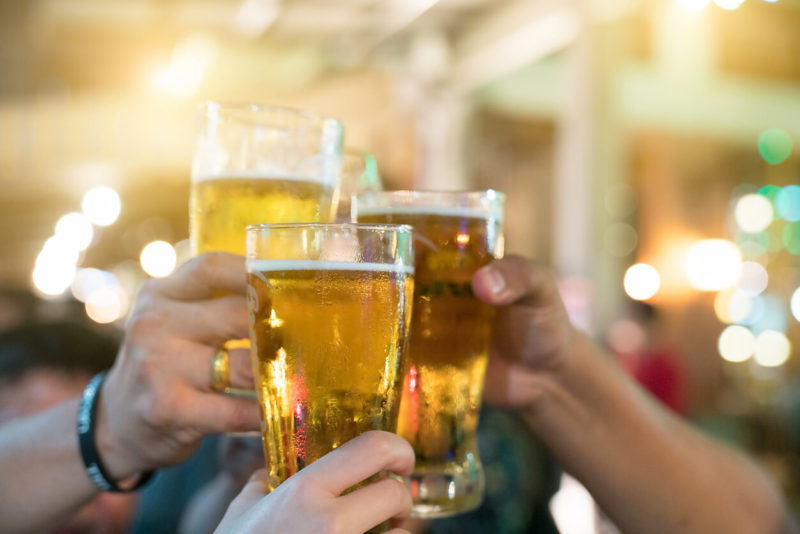Table of Contents
For some people, enjoying a glass of their favorite alcoholic drink or cocktail is a simple pleasure in life. Celebrating a major milestone (birthday, bachelor/bachelorette party) or just partying with friends every now and then by getting a little too drunk is seen as a normal part of life for those in their 20s and 30s.
Individuals all have their own reasons for drinking, whether it’s to improve their mood and confidence or because they want to experience the depressive and sedative effects of alcohol. Regardless of the motivation, alcohol can be a crippling addiction for some and can get out of control very quickly. Understanding what makes alcohol addictive can shed light on why people use it and help identify dependence or abuse early on.
Alcohol is the most commonly used addictive drug in America, and over 17 million people fall under the category of alcohol dependence or chronic abuse. Binge drinking, widely seen among college-aged demographics, fosters behaviors that can develop into alcoholism later in life as well.
Alcoholism is a complex problem to address because the signs and symptoms can be challenging to identify or can be hidden altogether. Finding a way to help someone you know who abuses alcohol can be difficult because people drink for different reasons — both physical and psychological addictive factors are at play.
Addictive Factors of Alcohol
Alcoholism is the addiction to alcohol or the mental illness and compulsive behavior resulting from an alcohol addiction. One of the biggest questions surrounding alcoholism is, “How do people get addicted to alcohol?” The simple, unscientific answer is that it makes people feel good.
When people drink alcohol, their brains are stimulated to release dopamine and endorphins, which are the chemicals associated with pleasure, satisfaction, and natural painkillers. Genetic factors make some individuals more susceptible to developing alcohol dependency (or worse), which is based on the amount of pleasure chemicals that are released when drinking.
When the brain’s pleasure center is overloaded, an individual can develop cravings and addiction to continue feeling that way.

Motivating Factors of Alcohol
While individuals may love the way alcohol makes them feel, the driving factors behind why people drink are different. Stress, self-esteem, depression, anxiety, and other negative emotions are some of the most prevalent reasons why individuals turn to alcohol. Alcohol is a depressant, which means it can help inhibit feelings of stress and anxiety, which can lead to higher self-esteem, relaxation, and mental numbness/forgetfulness.
Whether drinking is motivated by a negative feeling that may stem from a job, financial situation, personal relationships, or other mental disorders, many individuals turn to alcohol to suppress negative feelings and emotions. Knowing the answer to “How does alcoholism start?” can help many individuals avoid putting themselves (or identifying loved ones) in situations that lead to abuse and addiction.
Why do people become alcoholics? Well, it is essential to remember that alcoholism is an addiction, which means that people lose control over their choices and become victims of their impulses and cravings. Individuals turn to alcohol as a coping mechanism for various issues and problems that they face in their daily lives. As mentioned above, the positive emotions and suppressive properties of alcohol are what individuals who suffer from alcoholism seek and ultimately abuse.
Seeking Help Is the Answer
There is no set timeline or number of drinks to define an answer for how long it takes to become an alcoholic because each individual is different — physically and mentally. But if you or a loved one feels a dependence or abusive relationship with alcohol, seeking help early is essential.
At United Recovery, we are here to help as we offer a wide range of services from alcohol detox, alumni program, luxury treatment, and group therapy, so give us a call or email us today, and let’s get started on this journey!


